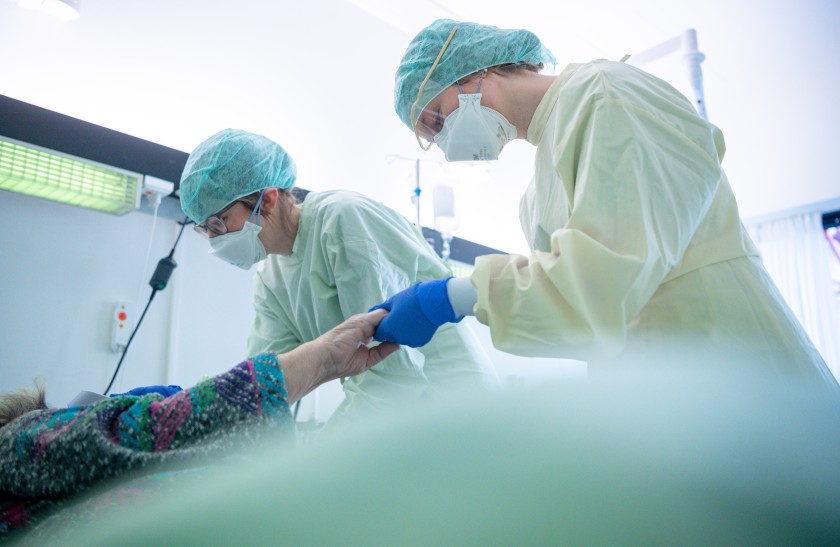Lasting Impacts of COVID-19 on the Body
A team of medical staff take care of a patient who has COVID-19.
April 27, 2020
While most people are worried about coming down with the pandemic virus, COVID-19, few people are looking for the long term effects of this virus on the human body. It’s a well-known fact that this virus causes major respiratory issues while the person is infected, but how much do medical staff know about whether these issues will be lasting or not?
Those with previous lung conditions are at a higher risk and lasting effects seem to be more severe than those who were previously healthy; however, some people who did not have any lung conditions have developed acute respiratory distress syndrome (ARDS) which is a result of serious lung damage and can be permanent. Older people above the age 65 are more likely to develop this, but exceptions have happened where younger people have as well.
COVID-19 also affects the liver, kidneys, heart, and other organs. In some patients that have recovered, blood tests have revealed that liver damage has sustained even when the virus was no longer detectable in their body. The damage causes the liver function to not return to normal. It is unknown whether these effects will stay with the patient indefinitely, but the potential risk shows just how serious the virus is.
In 12% of the people who recovered from COVID-19 in China, the heart had been weakened to the point where they suffered heart failure. When the body receives insufficient oxygen, it weakens the heart and other organs. This issue is sometimes irreversible in serious cases. People who are predisposed to heart related conditions have to be careful not to contract the virus or to get medical care if they do.
Not only does COVID-19 cause physical effects, it also can lead to post traumatic stress disorder (PTSD), anxiety, and depression. Weill Cornell Medicine in New York City cautioned that people who are admitted to the intensive care unit (ICU), are at a higher risk to develop the aforementioned mental health problems. This issue can be hard to help when hospitals are overwhelmed with new patients as well as patients who are in the hospital for unrelated health complications.
Dr. Gary Weinstein, a pulmonologist and critical care specialist from Texas Health Presbyterian Hospital Dallas, explained that “Post-intensive care syndrome (PICS) is used to describe patients who have survived a severe critical illness, along with the intensive care required to survive. Patients can have some combination of physical impairment, cognitive impairment, and psychiatric impairment.”
The bottom line is this: regardless of whether these effects last forever or only for a few months, they lower the person’s quality of life and can lead to mental health issues. These health conditions are just one more reason why people should continue to social distance even when it’s difficult because of the dangers of anyone who develops COVID-19 that is not confined just to the detectable stage of the disease.
Sources:





























